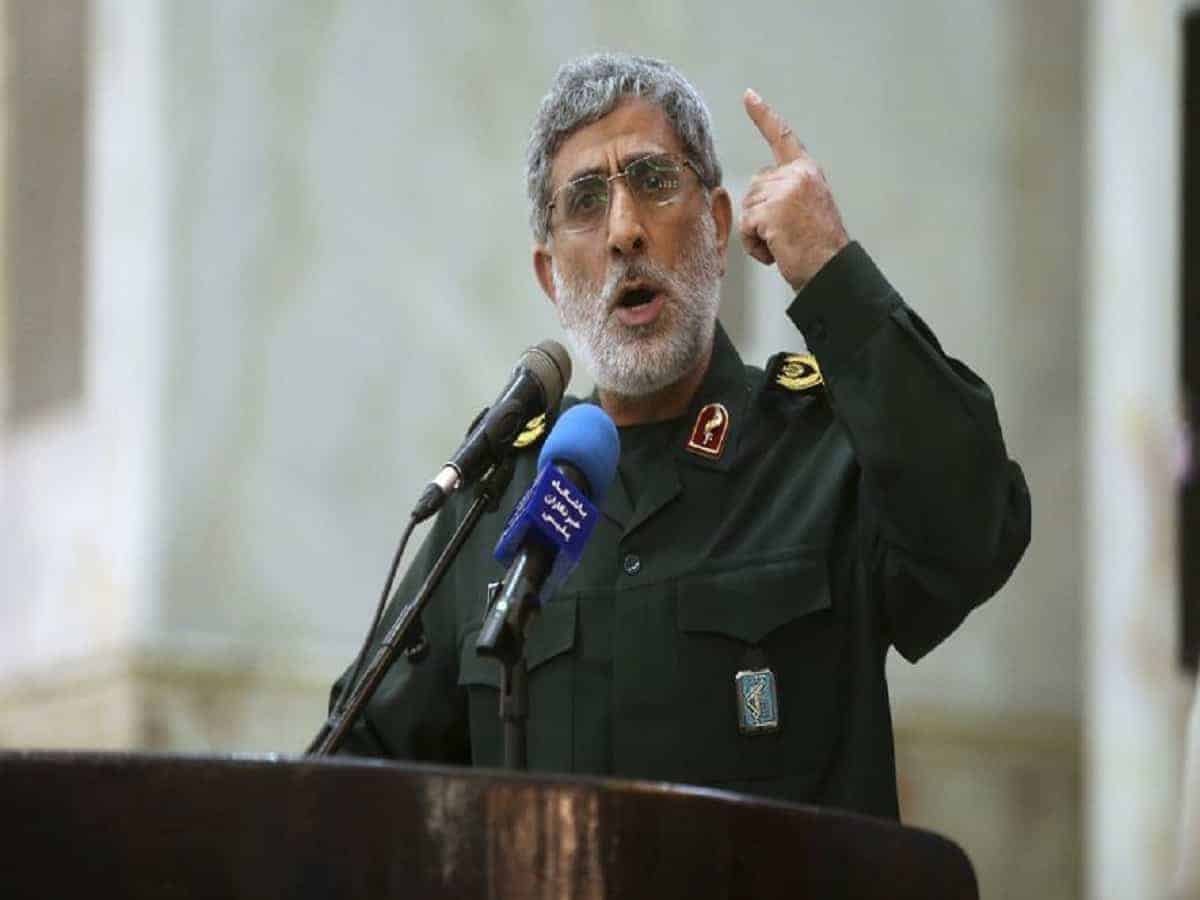Tehran: The newly appointed commander of Iran’s elite Quds Force Esmail Qaani on Monday said that the United States killed his predecessor, Qassem Soleimani, in a ‘cowardly way’. He promised to hit his enemy in a ‘manly fashion’.
Qaani made the remarks at an introduction ceremony held for him by top Islamic Revolutionary Guard Corps’ (IRGC) commanders to mark the formal beginning of his tenure.
“They (US) hit him (Soleimani) in a cowardly way, but with God’s grace and through endeavours of freedom-seekers around the world who want vengeance over his blood, we will hit his enemy in a manly fashion,” he said.
Soleimani’s assassination in a US air strike in Baghdad on January 3 pushed the US and Iran to the brink of war, but fears of an all-out conflict eased when retaliatory Iranian attacks against US targets in Iraq on January 8 concluded without any fatalities.
Iran’s Supreme Leader Ali Hosseini Khamenei has since called for the expulsion of all American troops from the Middle East.The Quds Force is part of the 125,000-strong IRGC, a paramilitary organisation that answers only to Khamenei.
IRGC oversees Iran’s ballistic missile programme, has its naval forces shadow the US Navy in the Gulf, and includes an all-volunteer Basij force.
Under Soleimani, the Quds Force helped boost Iranian influence across the Middle East by building up a vast network of proxies.
In Syria, the unit played a key role in shoring up support for embattled Syrian President Bashar al-Assad after the country descended into war in 2011.
It also armed and trained militias that helped defeat the armed group ISIL (ISIS) in both Syria and Iraq.
Khamenei, while announcing Qaani’s appointment, said the Quds Force’s new chief was “among the most prominent IRGC commanders” during the 1980-1988 war between Iran and Iraq, adding the unit under the veteran soldier will follow an “identical” strategy to that pursued by Soleimani.
At the slain commander’s funeral days later, Qaani, 62, pledged to continue on his predecessor’s path “with the same force”, saying his assassination “will be reciprocated in several steps by removing the US from the region”.
Born in the late 1950s in the city of Mashhad in northeast Iran, Qaani joined the IRGC in 1980, a few months before Iraqi forces invaded western Iran, triggering a bloody eight-year war that killed about one million people.
Soon after the war, Qaani was appointed as deputy chief of the IRGC’s ground forces.
Although it is unclear when Qaani joined the Quds Force, Iran’s state news agency IRNA said he was appointed as the unit’s deputy in 1997, the same year that Soleimani was named its commander.
With a clear division of labour and maintaining geographically distinct spheres of influence, Soleimani and Qaani together played a strategic role in expanding Iran’s influence in neighbouring nations.
In the few public statements Qaani has made, he slammed the United States and Israel and said in a 2017 article that US President Donald Trump’s “threats against Iran will damage America”.
In 2012, the US sanctioned Qaani citing his role in financial disbursements to the Quds Force’s “elements in Africa” and other “terrorist groups”.

